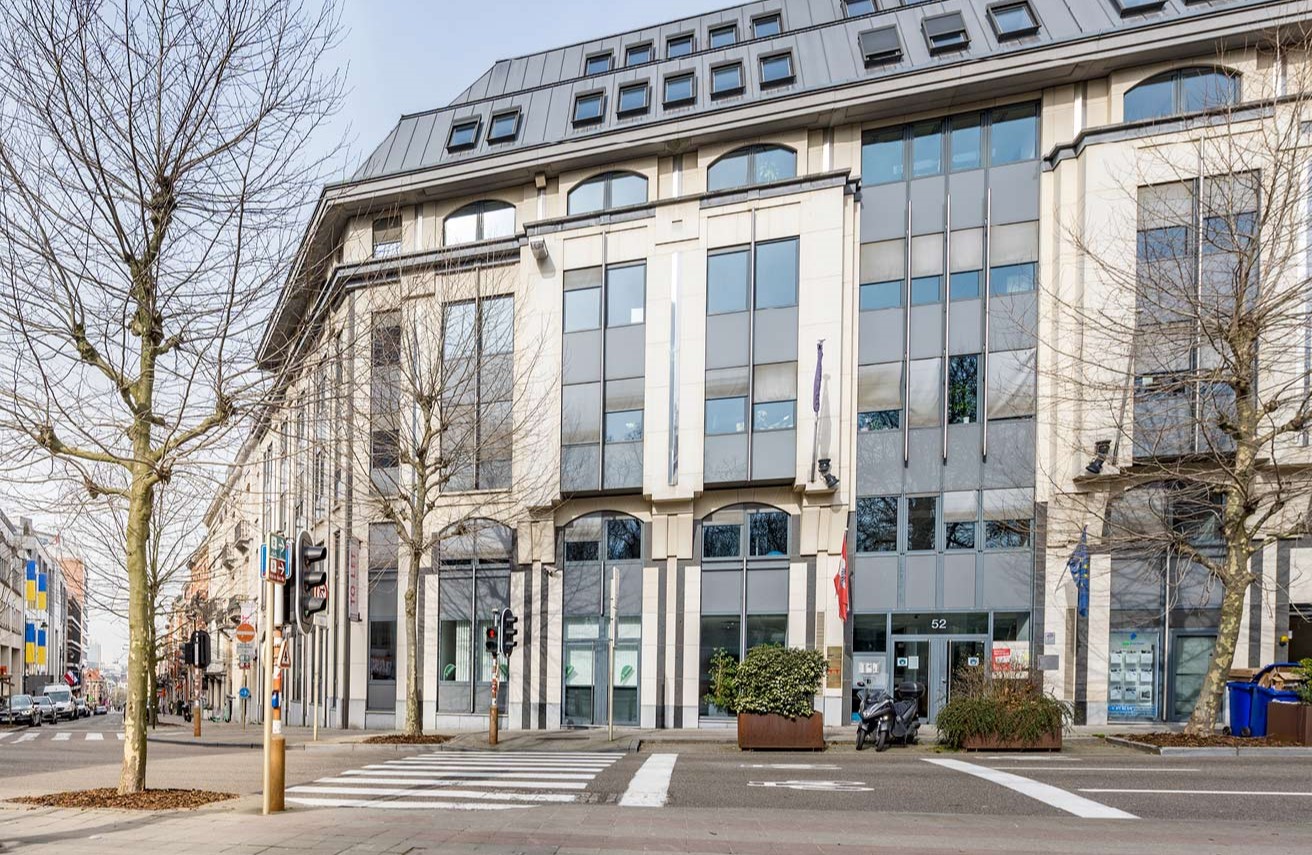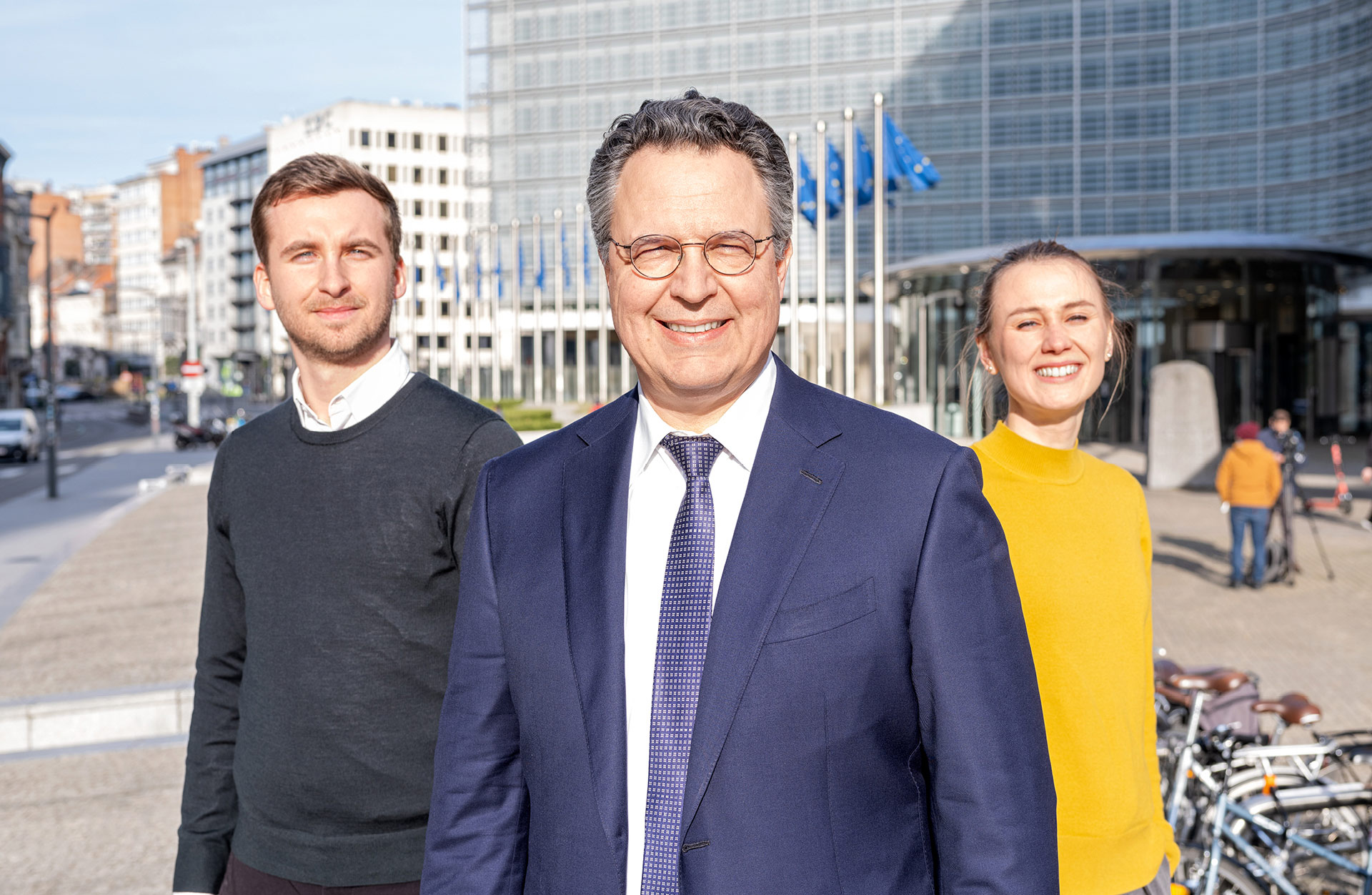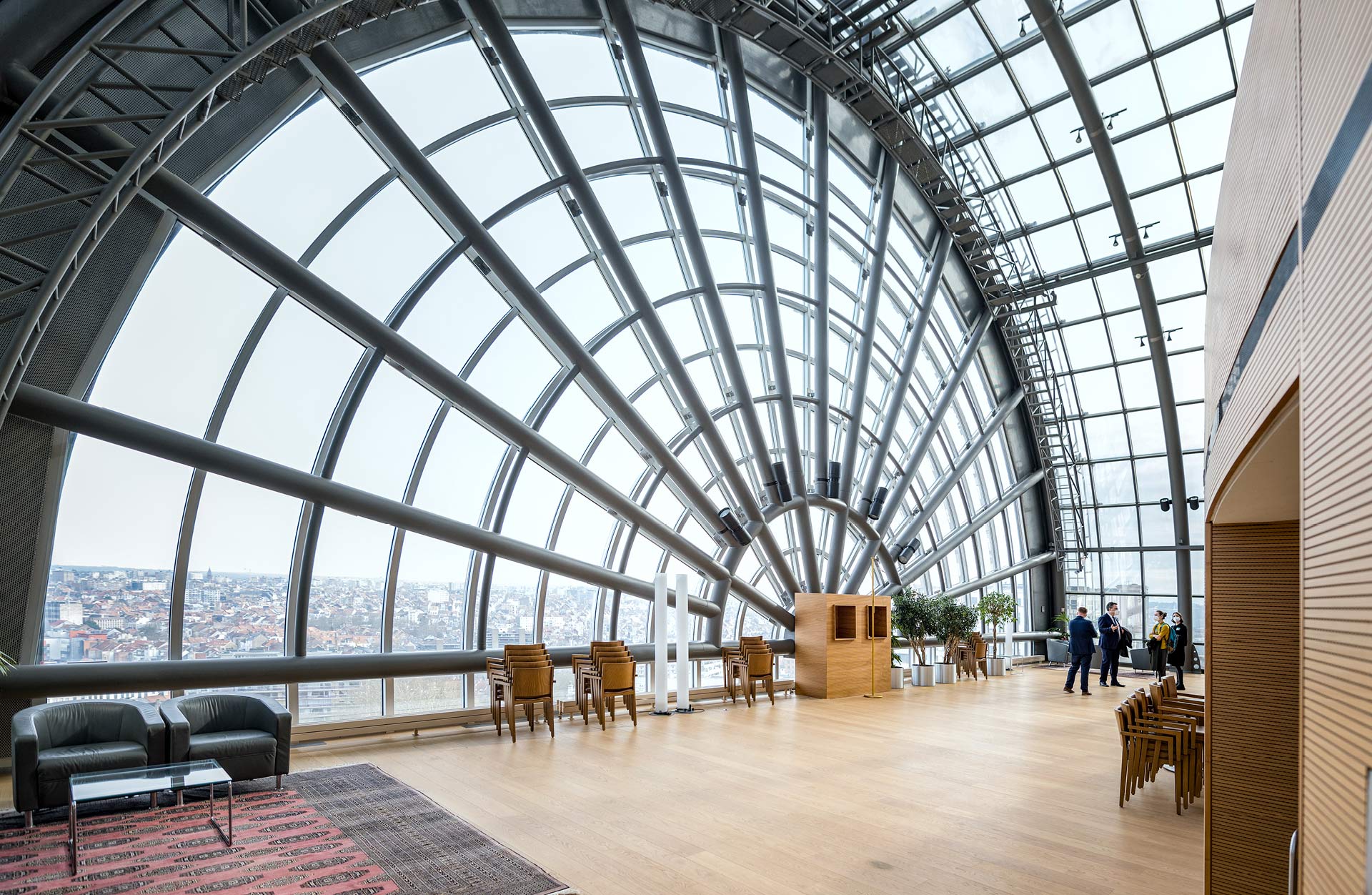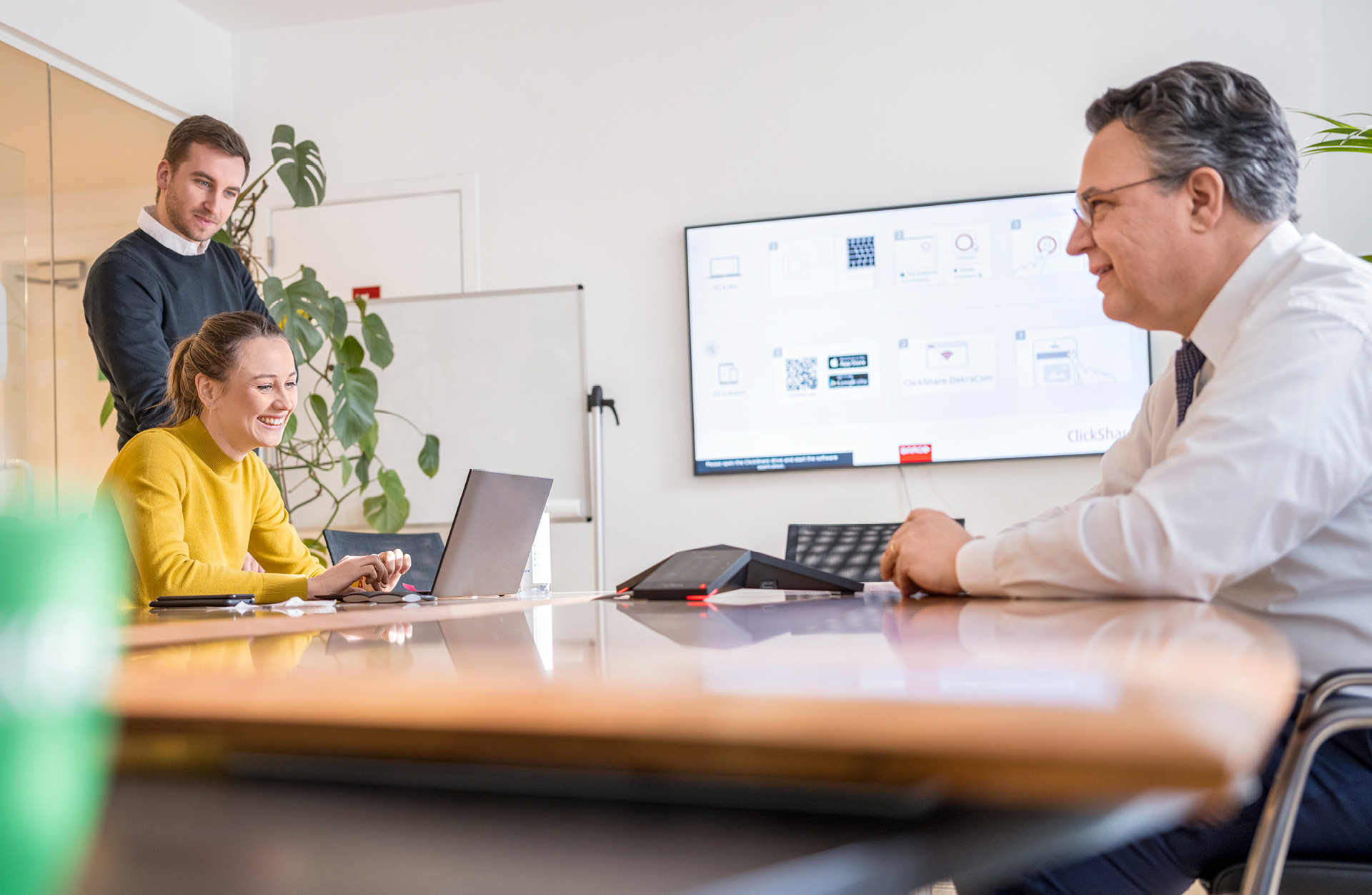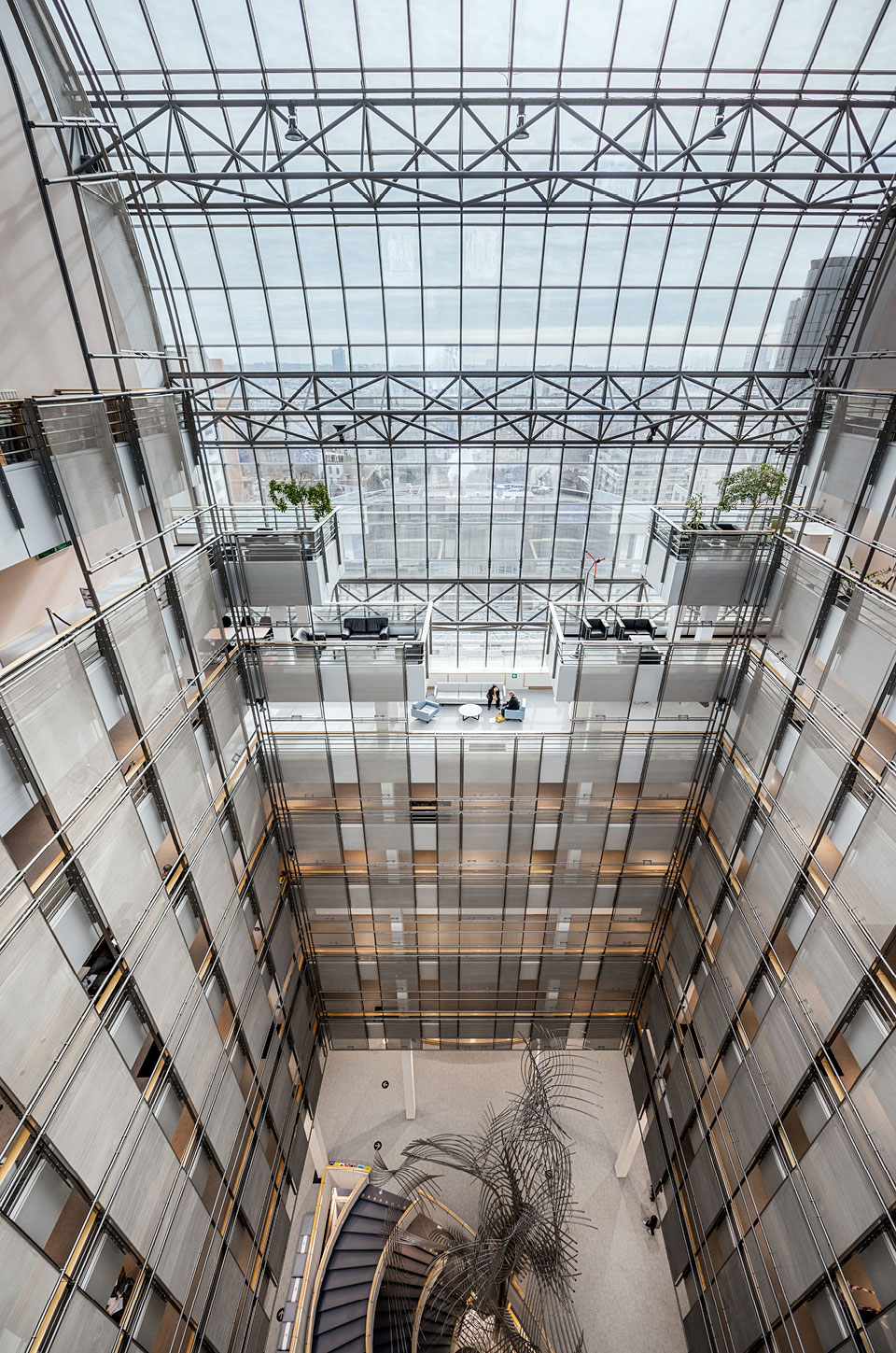Political Work for DEKRA in Brussels
On the Avenue de Cortenbergh in Brussels’ European District, the towering glass facades reflect the flags of many different nations. The Austrian flag is hoisted at number 52, where from afar you can see Oliver Deiters, Head of Global External Affairs and Public Policy at DEKRA, seated at his desk on the ground floor of the building. The team of political representatives resides in the best location – the same building that houses representatives of the Austrian embassy in Brussels.
Oliver Deiters and his team begin the weekly digital conference with their colleagues in Berlin and Stuttgart. Topics include current developments in EU legislation on assistance systems, the subject of a report to be published in the near future. The employees in Berlin are currently focusing on the business of testing elevators and planning an event for presenting the new Road Safety Report.
The Art of Networking
The employees in Brussels, Berlin, and Stuttgart are engaged in activities that are generally referred to as lobbying. Their task is to represent DEKRA’s political interests to the European Union, the United Nations, and on a state and country level. The teams in Brussels and Berlin are at the heart of all the action. The core task is networking and cultivating contact with politicians and associations to ensure DEKRA’s voice is heard on the political stage, as the company’s services are bound by current legislation. “To start with, you need to keep an eye on everything. What legislative initiatives will we encounter?” explains Oliver Deiters. “We always have to be up to date.” Then it’s about filtering out the topics that are relevant for DEKRA. “It’s like a funnel that’s constantly being filled.” Oliver Deiters and his team are much like scouts. “With hundreds of legal texts and papers, I have the chance to be a great and fast reader. The idea is to establish direct contact with people such as Commission staff, who can tell you precisely, for example, that the bottom paragraph on page 398 of the 500-page text is relevant for you.”
According to Deiters, you can’t learn networking at any university in the world. “Either you can do it, or you can’t. It requires a nonchalant way of getting in touch with people. I need to be able to communicate a point of view without getting on anyone’s nerves. If I were uptight and would prefer to put my feet up at 6 p.m., it wouldn’t be the job for me. You have to go out and interact with people, even during your lunch break and after hours.”
Trust Center Model
On Deiter's agenda for the day is a lunch date - an opportunity to talk about the Data Act. DEKRA supports the Trust Center model, which promotes universal access to data. “Data flows into all products and services,” explains Deiters. “It’s not just about the vehicle. It’s the first product – aside from smartphones – under intensive discussion in this context.” It goes without saying that vehicle data can be complicated, as vehicles move within a three-dimensional space and should then also have automated functions. “At the end, no one knows anymore who drove the vehicle – the driver, the car, or the software?” The problem is that the vehicle is accepted and declared safe during the type testing process and distribution, but can then be changed again with a software update. “No one else checks that. Assistance systems can be changed afterward in such a way that they have a negative impact on road safety,” says Deiters. For example, if the lane assist fails or the navigation system recommends turning where there’s a sidewalk rather than a road. “That’s why we’re pleading for a neutral location for the data, the Trust Center model. Data for official activities should be saved in an unfiltered form and be accessible – to us as a testing company as well as for the purpose of investigating accidents.”
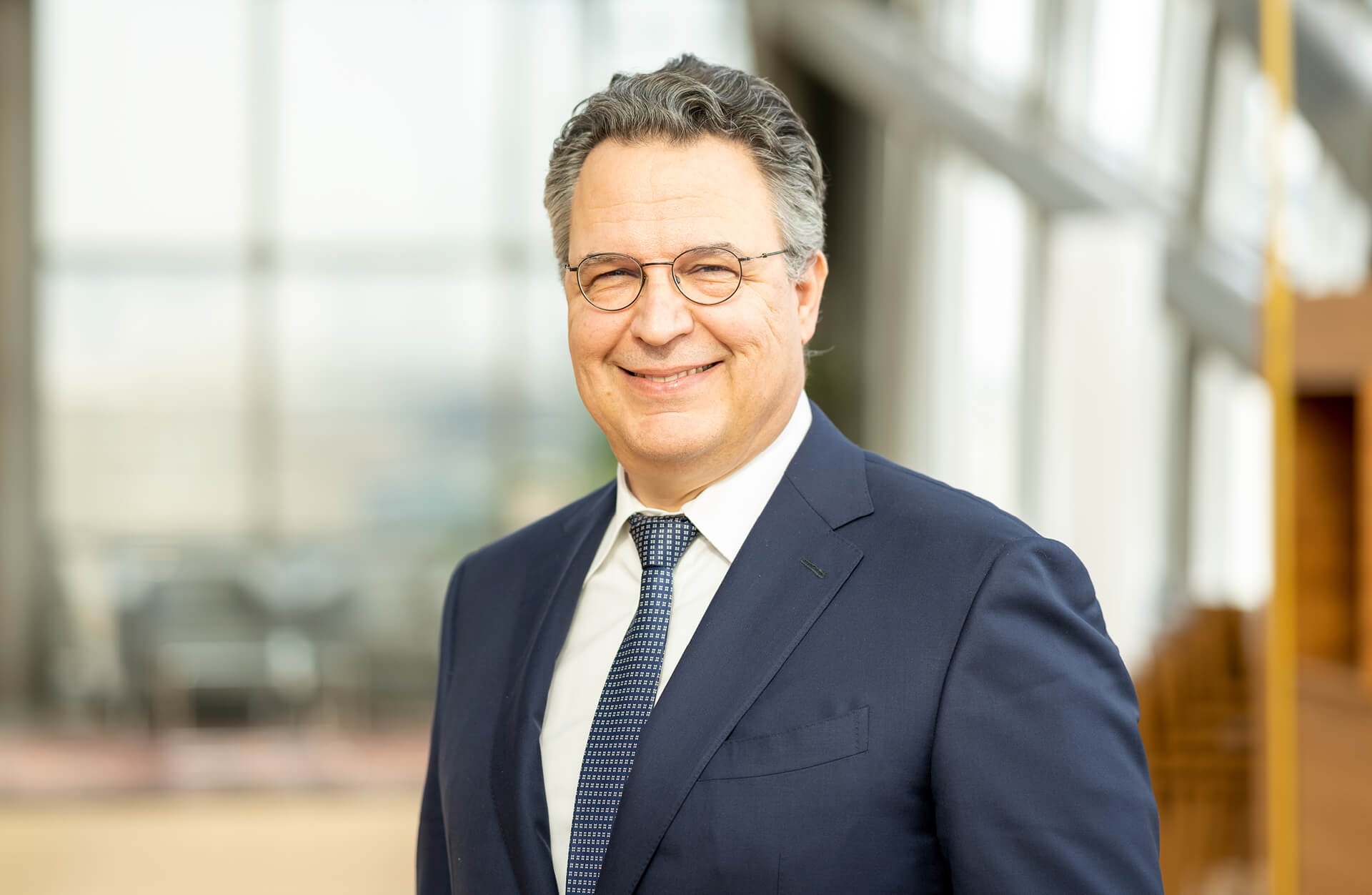
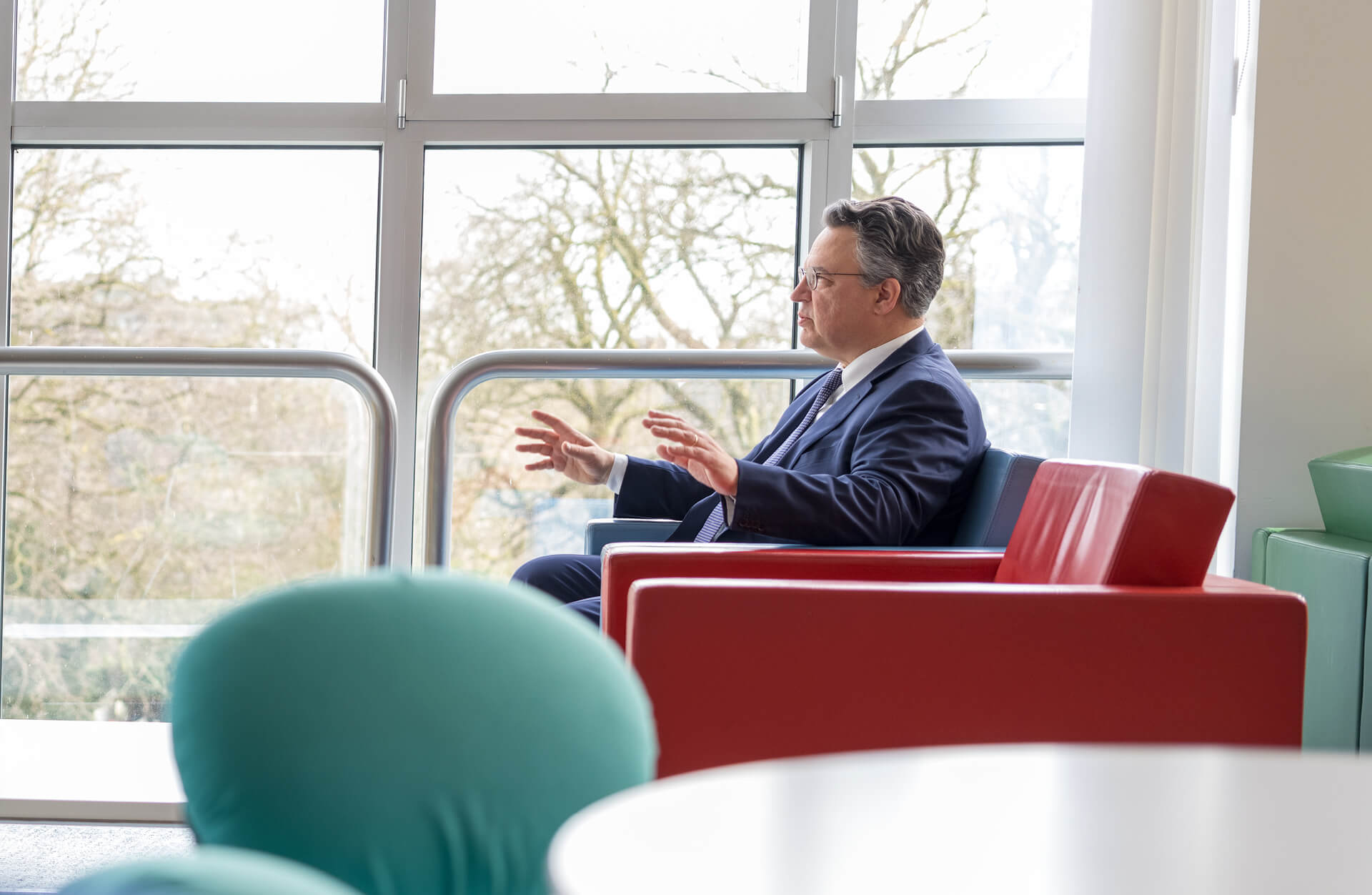
Exchange in the Name of Safety
On an EU level, you meet different groups of people such as company representatives, association members, ministers, and members of parliament. As an interest group, DEKRA can have an influence on the legislative initiative and discussion of the law. How does that work? Oliver Deiters starts by correcting a common misconception: “Lobbying does not mean that we’re constantly getting together for meals or sipping Champagne at events. Politicians, associations, and other companies depend on us as a source of expertise. We contribute to the political discourse with key insights from the various segments. It’s all about exchanging information, ideas, projects, and points of view.” According to Deiters, who has chosen to make Brussels his home, DEKRA has a key advantage. “We represent a product that everyone supports, namely safety. That’s different from lobbying for cigarettes or guns.” Of course, it can be beneficial if there’s a good relationship or if information is presented in an appealing way. And it goes without saying that personal contacts can also help professionally. “I can also try to reach someone in the European Commission, but they tend to spend the entire day in meetings. I might see them at a reception in the evening. Jackpot. Now I just need to start up a conversation - and they stay on the ball afterward.” He says that whom you meet is less important at the beginning. “It’s all about a functioning network as a whole, which you develop over a period of years. That’s what points you to the right person.” The makeup of the committees changes after each election – of course, that’s not limited to the EU.
Dynamism defines political life in Brussels, and is also the keyword for 54-year-old Oliver Deiters, who represented Saarland at the EU in Brussels before joining DEKRA nearly 23 years ago. “The challenge is focusing on what’s important despite all the hustle and bustle in Brussels. Listening carefully to others – rather than thinking about what you want to say next.” Deiters is considered to be one of the most experienced lobbyists in Brussels and has seen many come and go. He’s often asked why he has never left. “It’s simple – the job offers me variety. DEKRA has experienced unbelievable change as a company over the years. We now deal with a whole host of new issues. It’s no longer just about main inspections. We deal with everything, from regulations for high-risk medical devices to non-destructive testing (NDT) for nuclear plants. In any case, I never get bored.”
International Working in Brussels
Good Morning? Bonjour? Goedemorgen? There are three officially recognized languages in Belgium: French, Dutch, and German. And there are a whole host of others in Brussels due to the EU institutions. “During the week, I myself speak more English and French than German,” says Deiters. The teams in Brussels and Berlin always have to keep their eyes and ears open, which applies not only to legislation, but also the organization. “We’re in close proximity to the internal experts. We depend on their expertise to respond to relevant legislative initiatives promptly and adequately,” says Deiters. The coronavirus pandemic also offered some benefits. “We were able to get a lot more people around the table digitally than would’ve been possible physically with all the clashing appointments.” The team used to visit the headquarters in Stuttgart more frequently, which was no longer possible during the pandemic. But that should change again soon.
It’s all about a functioning network as a whole, which you develop over a period of years. That’s what points you to the right person.
Oliver Deiters, Head of Global External Affairs and Public Policy
